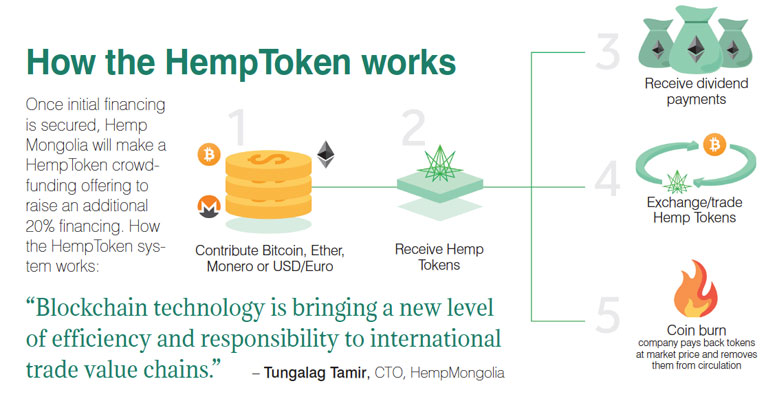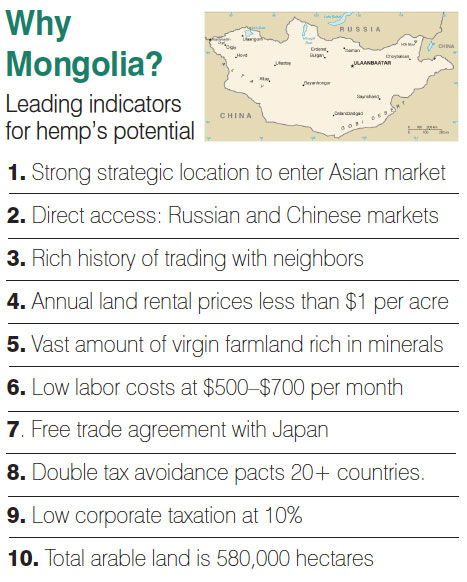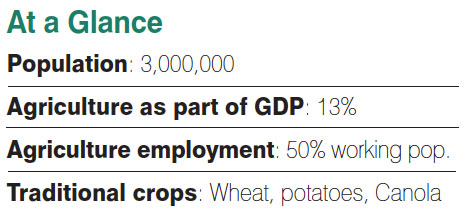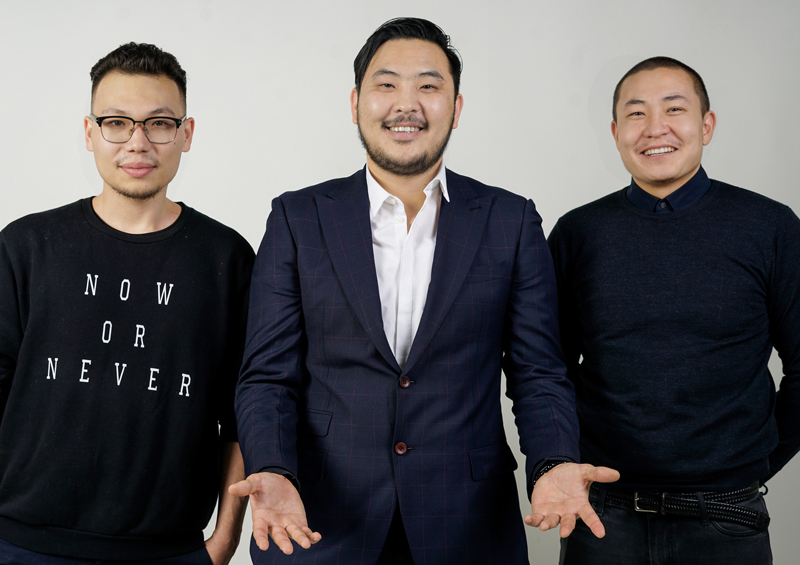Roaming the native grasslands of Mongolia as a child, Anar Artur developed a fascination with the landscape and all things natural that he’s carried into adulthood. That’s how a fishing trip in 2013 upended his career.
“We came across some hemp plants – and that changed everything,” said Anar, co-founder and CEO at startup HempMongolia LLC.
After researching hemp and realizing its many potential uses, Anar eventually quit his job in a marketing services company to focus on hemp. “I was sure that I’d found the perfect project to dedicate myself to, something revolutionary that can bring benefits not only to people but to the environment too,” he said of his life change.
Anar eventually joined with his brother, Tungalag Tamir, and friend Munkhbayar Nyam-Ochir to form Hemp Mongolia, which they are developing into a vertically integrated hemp agro enterprise. The project combines agriculture and high-tech financing strategies – with a goal of resurrecting an ancient crop in Mongolia.
Important milestone
After three years of work, the company early this year reached an important milestone when it got authorization from the Mongolian government to cultivate and process hemp into a diversified line of products, including for export – the first such licenses granted in the country. Hemp Mongolia also has signed initial agreements to lease 20,000 hectares for hemp farming, Anar said.
Critical to the trio’s plans is HempToken, an “eco-investment” commodity on the Etherium blockchain. “Blockchain technology is bringing a new level of efficiency and responsibility to international trade value chains,” said Tungalag, who serves as HempMongolia’s CTO and is the driving force behind the blockchain aspect of the company’s strategy. He’s been watching cryptocurrency and blockchain developments since 2009, and is a whiz at online marketing, brother Anar says.

Looking for an angel
Close relations with farming officials and agriculture stakeholders and experts helped the company move quickly and inexpensively through a research and business plan development stage and into a search for investors.
The partners, who say they will offer 30% to private investors, are continuing to meet with interested parties as they look for an angel who can provide the spark for their ambitious vision, with estimates for a whopping 80% return within three years. A HempToken crowdfunding offering to raise an additional 20% will launch after the initial financing is secured, they say.
“It’s necessary to build up strong capital and technological advantages to become a leading exporter,” said Munkhbayar who, as Chief Operating Officer guides the company’s overall strategy and is leading the search for a partner. He sees Hemp Mongolia developing into a regional supplier of hemp food and animal feed as well as other value added by-products.
Anar notes that the Mongolian government is finally developing a strategic plan for agriculture after years of inertia in the sector as resources and attention were focused on a national mining boom. He said the government has realized that an economic growth model dominated by the commodity sector can’t meet long-term wealth creation goals.
Shifting policies
The new policies, aimed at creating scalable employment and diversifying the country’s economy by focusing on sustainability, innovation and new technologies, are driving public finance programs – and giving the agricultural sector momentum, Anar said.
Hemp fits into that strategy perfectly, according to Anar. “With its fast germination and growing strength, it’s a perfect crop to withstand Mongolia’s short summer vegetation period and relatively dry climate,” Anar said.
And with engineering and agricultural knowhow in a rapid development phase, he said Hemp Mongolia is poised to tap into a rich pool of human resources coming out of the country’s historically strong educational system.

International trade corridor
Along the way, the partners have started to popularize hemp and its many applications, talking up the plant’s potential to deliver health products, textiles, building materials, food and cosmetics, and coaxing entrepreneurs to enter those sectors. They see Mongolia, located in geographic heart of Asia, becoming an international trade corridor bridging European and Asian economies. They point to favorable tax incentives, inexpensive labor and cheap land lease fees as investment incentives.
“We’re building a model to attract investors so we can accelerate production and help Mongolia develop one of the most advanced agricultural economies in Central Asia,” Anar said.


